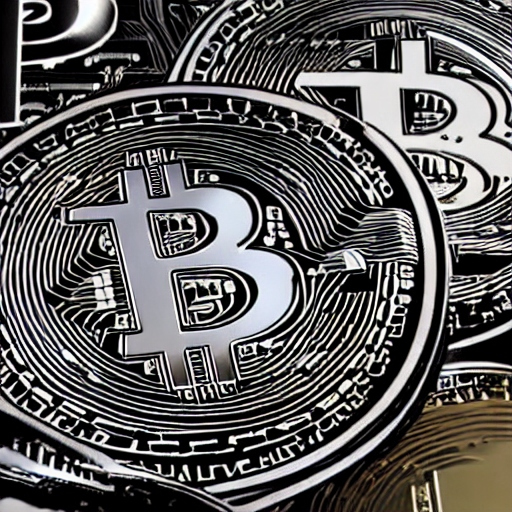Numerous obstacles prevent international coordination of efforts to regulate crypto assets, from dispersed monitoring and enforcement to differentiating crypto asset classifications.
The need for a worldwide approach to crypto-asset legislation is highlighted in a recent study from the World Economic Forum, which also offers potential answers to these problems.
The research, Pathways to Crypto-Asset Regulation: A Global Approach, emphasizes that while complete global coordination for crypto regulation would be ideal, variable ecosystem development in different jurisdictions, shifting use cases, the ability of regulators, and other factors make it difficult to achieve.
In order to collaborate and govern the crypto-asset ecosystem using an agile, principle-based approach that takes local context into account, regulators and industry actors should explore alternative regulatory approaches. These additional regulatory approaches can be used in conjunction with current global coordinating efforts to achieve the desired result.
Matthew Blake, Director of the World Economic Forum’s Centre for Financial and Monetary Systems, stated:
Recent market developments and the changing crypto-asset ecosystem have highlighted the urgent necessity for cooperation and the building of strong safeguards. To secure an adequate degree of consumer protection and market integrity, it is crucial to create collaborations between international organizations, national agencies, and industry stakeholders. This is important even though different jurisdictions may choose different ways to regulating crypto-assets.
Trends in global crypto regulation
The creation of high-level frameworks and evidence-based research has been a major focus of recent years for a number of international standard-setting bodies and organizations. Some similar tendencies have begun to emerge as nations have sought to regulate the ecology.
The following rules have been put into place by numerous nations and regions:
These tendencies can already serve as a foundation upon which the global crypto-asset ecosystem can build to advance towards coordinated, harmonized regulation on an international level.
Recommendations for regulations
Although ideal, global coordination is challenging to attain.
International organizations, regional organizations, and members of the sector, however, can already implement existing regulatory routes.
International organizations
International organizations should work to develop a common understanding of the taxonomy and classification of cryptocurrency assets and related activities, establish regulatory minimums, and promote data-sharing and passportability that enable interoperability.
These steps can promote convergence across countries, offer business clarity, safeguard users, and deter illegal activity.
Regional and national authorities
In order to empower consumers and provide assurance “for innovators,” regional and national authorities are crucial. In light of this, the research advises that they concentrate on coordinating domestic departments to handle cross-sector risks and create guidelines and best practice frameworks to properly govern the ecosystem.
They should also make use of technology and analytics services for real-time risk warnings, automated regulatory compliance/reporting, and tracking regulatory change.
Additionally, these organizations can put best practices learned from other sectors’ regulations into practice. Data-sharing laws in the cryptocurrency sector may benefit from lessons learned from, say, the supervisory institutions in charge of regulating information sharing in the larger financial sector.
Industry leaders
Leaders in the industry should keep working on compatible technical standards and concentrate on developing and promoting best practices. In order to responsibly innovate and coordinate educational efforts, they should also interact with policymakers and regulators.
Players in the cryptocurrency business have a crucial responsibility to ensure that the ecosystem develops responsibly, and they can learn from more established industries to carry out this responsibility.
For instance, to ensure that consumer interests are safeguarded, the crypto ecosystem can use to years of expertise in developing credit card data security standards or global norms of good practice in the foreign exchange market (Global FX Code).
In the end, it will be necessary for global organizations, local, state, and federal regulators, and business executives “to collaborate to ensure consistency and clarity.”
The new research suggests many prioritized pathways that different stakeholders can use to reach the desired objective while noting the difficulties in establishing coordination.
Utilizing a variety of regulatory measures, including as legal frameworks, voluntary codes of conduct, and educational programs, is necessary to properly govern this dynamic industry.
Furthermore, it becomes possible to imagine even more efficient regulatory mechanisms to handle cross-border concerns given the inherent openness of these new technologies.
In response to the report, Circle’s co-founder, chairman, and CEO, Jeremy Allaire, stated that his organization has placed a high priority on regulatory engagement and harmonization, both of which the WEF and Digital Currency Governance Consortium are still working to improve.
They applaud this work and exhort governments, businesses, investors, and individuals to foster a competitive push for responsible financial services innovations fueled by digital currencies and continuously evolving financial infrastructure.
Michael Gronager, co-founder and CEO of Chainalysis, stated that they think the banking system ought to be improved:
They have the power to completely revolutionise the world economy. The World Economic Forum’s paper on the regulation of crypto-assets is an important step in promoting a fair and educated approach to overseeing this revolutionary sector.








